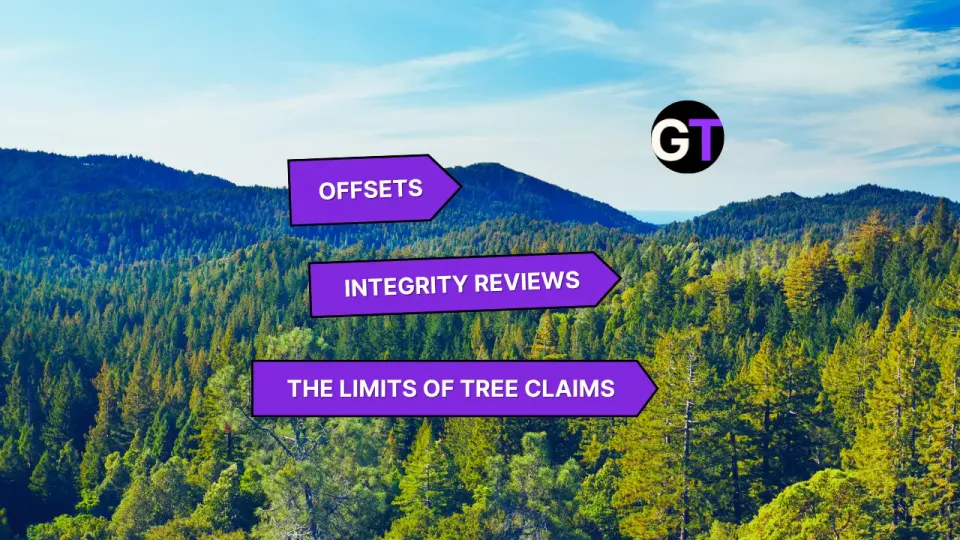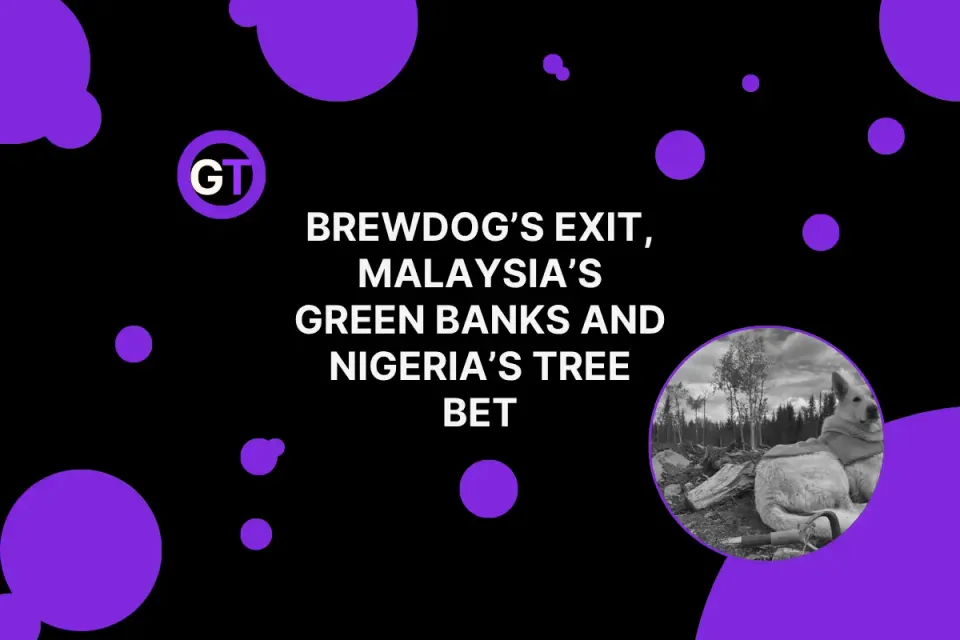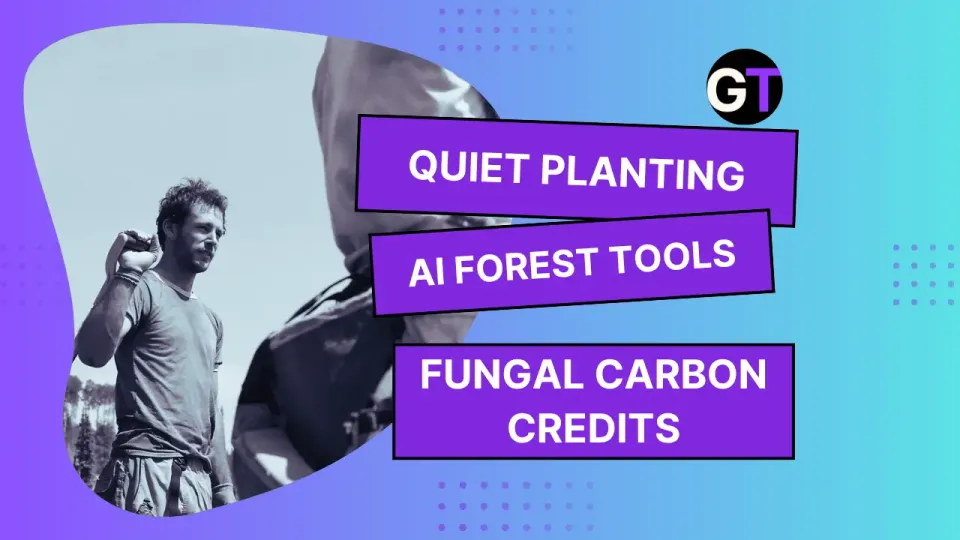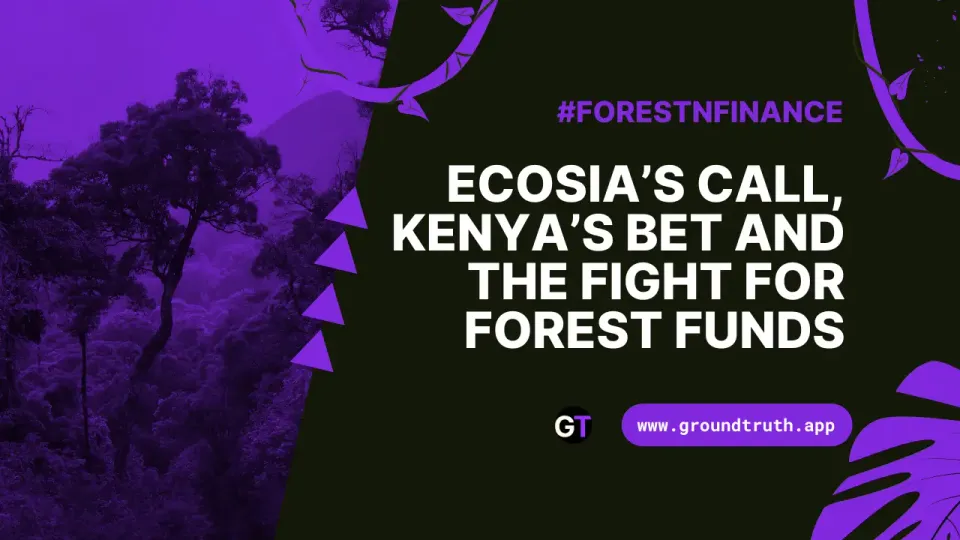Halloween 2024 News Roundup 👻
Real zero, green growth, AI-salmon fishing and more.

Balancing Carbon Restoration and Water Security 🌍💧
A recent study highlights a critical trade-off: restoring degraded lands for carbon capture could significantly reduce global water availability, especially in already dry regions. As nations push for net-zero, this research emphasizes the need for balanced strategies that protect both water resources and climate goals.
How do you think we can balance carbon and water needs for a sustainable future?
👉👉 Read more on Phys.org.
Study: Diverse Forests Key to Resilience, Not Monocultures 🌲🌿
A new UBC study argues that BC’s reliance on monoculture reforestation—mainly pine and spruce—leaves forests highly vulnerable to climate threats like fires, pests, and drought. Researchers recommend adaptive forestry: diverse planting, commercial thinning, and assisted migration of resilient species to build forests that can withstand climate stress, creating healthier ecosystems and stronger job security for rural communities.
Do you think diversified reforestation is worth the extra cost?
👉👉 Read our commentary on Ground Truth.
Growing Momentum for Nature-Related Financial Disclosures 🌱📊
At COP16, the Taskforce on Nature-related Financial Disclosures (TNFD) announced that over 500 companies, representing $6.5 trillion in market capitalization, have committed to align their reporting with TNFD's nature-focused guidelines. This wave of adoption highlights the increasing focus on nature as a material business risk and potential advantage.
Do you think nature-focused financial reporting can reshape corporate sustainability?
👉👉 Read more on ESG Today.
Oxfam Pushes for Transparency in Climate Finance 💸🌍
Oxfam's new report, Climate Finance Unchecked, highlights serious gaps in the World Bank’s climate finance tracking, with a $24–41 billion discrepancy between planned and actual spending from 2017 to 2023. Oxfam calls for better transparency through post-project assessments and a public database, ensuring climate funds truly make an impact.
Do you think clearer reporting could boost trust in climate finance?
👉👉 Read our coverage on Ground Truth.
Canada’s Push for Industrial Carbon Competitiveness 💼🌎
Canada’s new Commission on Carbon Competitiveness (C3) highlights industrial carbon pricing as the key to reducing emissions while keeping industries competitive in a carbon-conscious global market. By aligning Canadian industries with emerging international standards, C3 aims to foster sustainable economic growth and protect jobs, investment, and communities amid the energy transition.
Could carbon pricing make Canada a leader in sustainable industry?
👉👉 Read more in Energy Mix.
Canada’s Urgent Need for 5.3 Billion Seedlings 🌲🔥
Following record wildfire losses in 2023 and 2024, the Canadian Tree Nursery Association (CTNA-ACPF) reports that 5.3 billion seedlings are urgently needed to restore 15% of affected forests. CTNA-ACPF calls for expanded funding and long-term government support to address this reforestation demand, citing critical provincial shortages and the need to boost skilled labor in nurseries.
Could an expanded tree-planting initiative reshape Canada’s wildfire recovery?
👉👉 Read more in IGrow News.
AI and First Nations Partner to Restore Salmon Runs 🐟🤖
In British Columbia's rainforests, First Nations and scientists are using AI to monitor and restore salmon populations. Motion-activated cameras, powered by the open-source YOLO algorithm, track each salmon that passes through remote rivers, helping sustain vital fish stocks for both community use and commercial fisheries.
Could AI be the answer to sustainable fisheries in remote regions?
👉👉 Read more in the National Fisherman.
Ecosystem Services Footprinting Tool Helps Companies Track Nature Impacts 🌍🔍
Stanford's Natural Capital Project and Morgan Stanley have launched the Ecosystem Services Footprinting Tool, an open-source platform that enables companies to measure their environmental impact with transparency. By analyzing ecosystem services like water quality and carbon storage, the tool guides businesses toward sustainable choices that balance growth with ecological responsibility.
How do you think tools like this could change the way companies approach sustainability?
👉👉 Read more in NatCap at Stanford.
Scientists Call for “Real Zero” Emissions, Not Just Offsets 🌍🚫
Over 60 climate scientists urge a shift from “net zero” carbon strategies to “real zero” emissions, arguing that relying on carbon offsets, especially forest projects, isn’t enough. Spearheaded by the Lethal Humidity Global Council, the “Real Zero Pledge” calls for cutting fossil fuels entirely, rather than balancing emissions on paper—a bold approach to avoid escalating climate impacts.
Do you think carbon credits make a real difference in fighting climate change?
👉👉 Read our coverage on Ground Truth.
Green Growth: 30% of Regions Show Economic Growth While Cutting Emissions 🌱📉
A new study from the Potsdam Institute for Climate Impact Research reveals that 30% of global regions have successfully reduced carbon emissions while continuing economic growth over the last 30 years. Yet, researchers warn that current decoupling rates aren’t fast enough to meet 2050 net-zero goals, urging stronger climate actions, especially from wealthier countries.
Do you think more regions can achieve this “green growth” balance?
👉👉 Read more from the Potsdam Institute.




